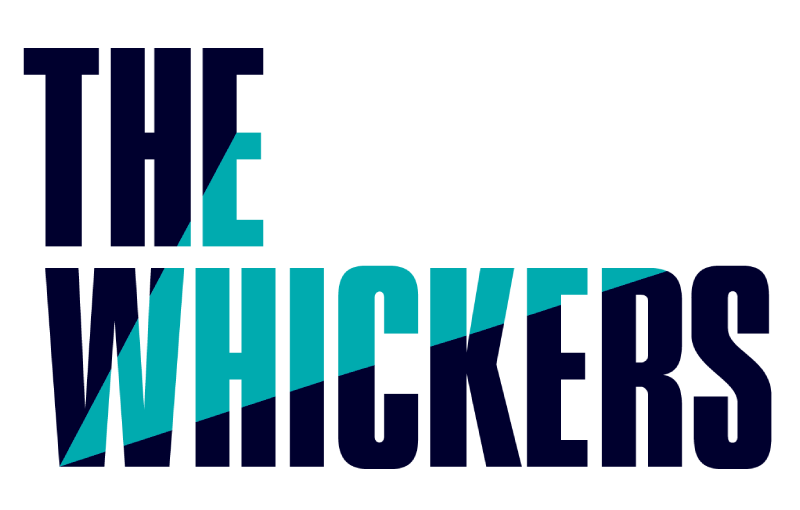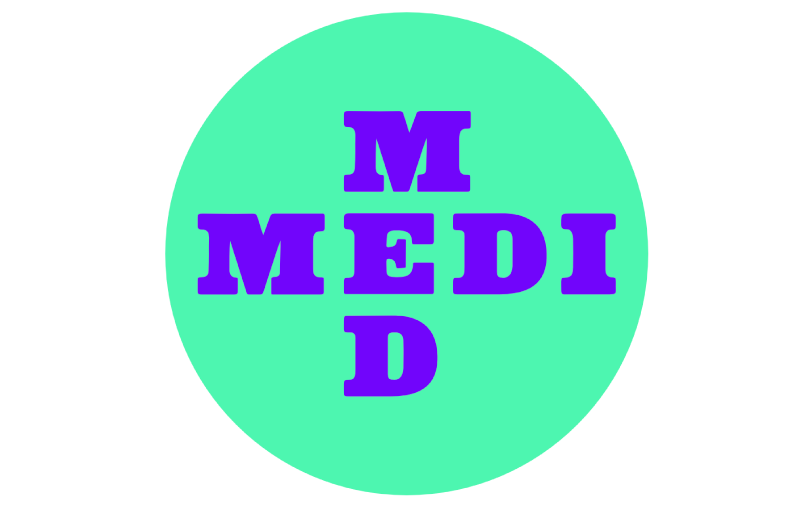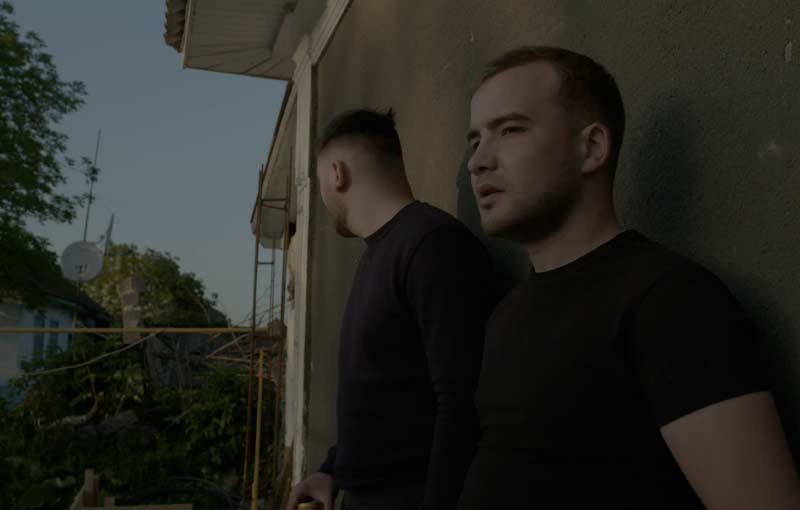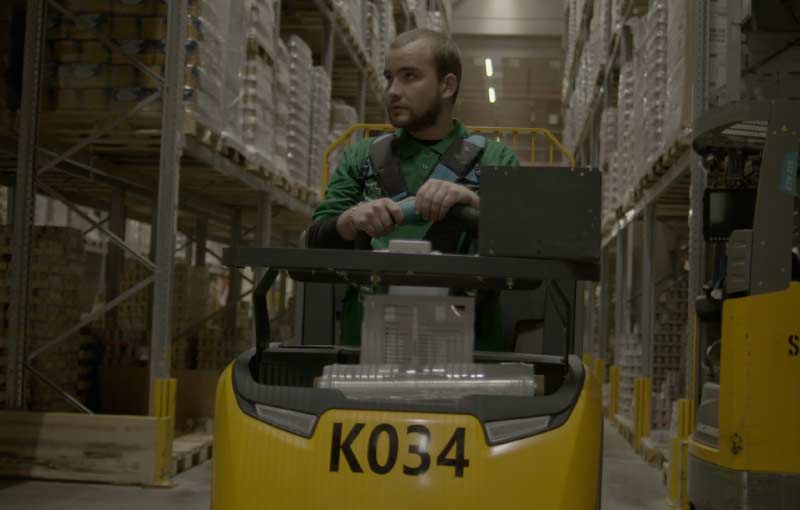Logline
Logline
The Film “How to Talk to Lydia?” tells the story of Moldovan migrant worker Damian, navigating the postmodern world in foreign country, within the walls of a German warehouse, where an artificial mind named “Lydia” guides his every move.
Perspective
The documentary reflects a deep interest in the posthuman condition and the subtle forms of alienation that shape contemporary life.
Logline
The Film “How to Talk to Lydia?” tells the story of Moldovan migrant worker Damian, navigating the postmodern world in foreign country, within the walls of a German warehouse, where an artificial mind named “Lydia” guides his every move.
Perspective
The documentary reflects a deep interest in the posthuman condition and the subtle forms of alienation that shape contemporary life.
Journey
Over the years, the project has grown through the invaluable support of various international workshops and development platforms. Among them, the Close Up workshop has been particularly formative — offering not only structural guidance but also a space of trust, dialogue, and solidarity for filmmakers working across borders and conflict zones.
“How to Talk to Lydia?” has been recognized with the Pitch the Doc Award (Belgrade, 2022), as well as the Whicker’s and MEDIMED Awards (Tbilisi, 2024). It is a German-Georgian co-production shaped by a slow and attentive creative process, led by filmmaker Rusudan Gaprindashvili, whose background in visual and performing arts, media management, and film production continues to inform her storytelling approach.
Journey
Over the years, the project has grown through the invaluable support of various international workshops and development platforms. Among them, the Close Up workshop has been particularly formative — offering not only structural guidance but also a space of trust, dialogue, and solidarity for filmmakers working across borders and conflict zones.
“How to Talk to Lydia?” has been recognized with the Pitch the Doc Award (Belgrade, 2022), as well as the Whicker’s and MEDIMED Awards (Tbilisi, 2024). It is a German-Georgian co-production shaped by a slow and attentive creative process, led by filmmaker Rusudan Gaprindashvili, whose background in visual and performing arts, media management, and film production continues to inform her storytelling approach.
Journey
Over the years, the project has grown through the invaluable support of various international workshops and development platforms. Among them, the Close Up workshop has been particularly formative — offering not only structural guidance but also a space of trust, dialogue, and solidarity for filmmakers working across borders and conflict zones.
“How to Talk to Lydia?” has been recognized with the Pitch the Doc Award (Belgrade, 2022), as well as the Whicker’s and MEDIMED Awards (Tbilisi, 2024). It is a German-Georgian co-production shaped by a slow and attentive creative process, led by filmmaker Rusudan Gaprindashvili, whose background in visual and performing arts, media management, and film production continues to inform her storytelling approach.
Synopsis
When the building is as huge as a food warehouse, the people and their stories inside become invisible. In a 235,000 square metre logistics centre with a huge number of workers, it still seems like an empty space. Is it “non a place”? Unless you look closely, there is no cultural exchange here, no meaningful conversations, because the building is full of products being prepared for transport to the supermarkets. Most of the workers come from Eastern Europe (Moldova) and leave their jobs and families behind to earn some money. Language is not a problem, as the bridge between customers and suppliers is the artificial IQ programme LYDIA, which has its own language that is not difficult to learn. Equipped with headphones and microphones, they work in isolation from the rest of the world, creating an intensive work process and a relationship with a technology that can repeat the order several times without getting angry and judging if the worker can pronounce the code word “repeat” correctly. If not, there is no shame, no fear, because LYDIA, although so perfect, cannot react emotionally. It gives the workers enormous freedom in the work process, but a feeling of loneliness and emptiness after work.
The film follows 24-year-old Damian from the small Moldovan village who leaves his tranquil world to work in a high-tech German warehouse as a “goods picker” with the artificial intelligence called “Lydia”. In the beautiful landscapes of rural Moldova, we get to know a community that is deeply rooted in nature. The narrative then switches to a noisy and sterile German warehouse, which stands in strong contrast to the tranquil Moldovan countryside. Here, Damian finds himself at the centre of a technical marvel. The building, where he works eight to ten hours a day, is very similar on both sides, divided by huge, identical, numbered shelves that reach up to the ceiling. People, machines and the AI Lydia are equal members of the network that supports the supply chain. As Damian improves as a worker, he becomes increasingly lonely, dehumanised, and alienated.
His personal journey becomes a microcosm of the wider cultural and ethical changes taking place in Moldovan communities as Romanian passports open the door to legal work in the EU.
Unser anspruch
AWARDED
“We specially value the relevance of the film’s subject matter, the importance of the ethical questions that derive from it, and the very personal and intelligent way of the director at approaching a new reality that emerges from the use of AI technology on a daily basis in a dehumanized world”.
Sergi Dolade from MEDIMED, after awarding the project at the Close Up workshop.
Unser anspruch
AWARDED
“We specially value the relevance of the film’s subject matter, the importance of the ethical questions that derive from it, and the very personal and intelligent way of the director at approaching a new reality that emerges from the use of AI technology on a daily basis in a dehumanized world”.
Sergi Dolade from MEDIMED, after awarding the project at the Close Up workshop.
Unser anspruch
AWARDED
“We specially value the relevance of the film’s subject matter, the importance of the ethical questions that derive from it, and the very personal and intelligent way of the director at approaching a new reality that emerges from the use of AI technology on a daily basis in a dehumanized world”.
Sergi Dolade from MEDIMED, after awarding the project at the Close Up workshop.
















































